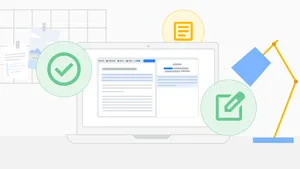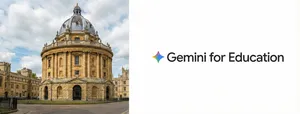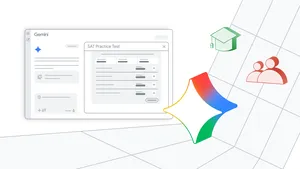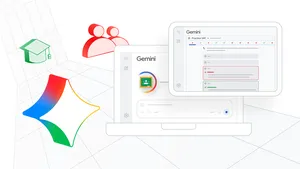Libraries across the U.S. are Ready to Code

Editor’s Note: Alan Inouye leads public policy for the American Library Association, and today he tells us about a new partnership with Google that will equip librarians to offer coding programs for kids in their communities
Emily Zorea is not a computer scientist. She’s a Youth Services Librarian at the Brewer Public Library in Richland Center, Wisconsin, but when she noticed that local students were showing an interest in computer science (CS), she started a coding program at the library. Though she didn’t have a CS background, she understood that coding, collaboration and creativity were critical skills for students to approach complex problems and improve the world around them. Because of Emily’s work, the Brewer Public Library is now Ready to Code. At the American Library Association, we want to give librarians like Emily the opportunity to teach these skills, which is why we are thrilled to partner with Google on the next phase of the Libraries Ready to Code initiative—a $500,000 sponsorship from Google to develop a coding toolkit and make critical skills more accessible for students across 120,000 libraries in the U.S.
Libraries will receive funding, consulting expertise, and operational support from Google to pilot a CS education toolkit that equips any librarian with the ability to implement a CS education program for kids. The resources aren’t meant to transform librarians into expert programmers but will support them with the knowledge and skills to do what they do best: empower youth to learn, create, problem solve, and develop the confidence and future skills to succeed in their future careers.

For libraries, by libraries
Librarians and staff know what works best for their communities, so we will rely on them to help us develop the toolkit. This summer a cohort of libraries will receive coding resources, like CS First, a free video-based coding club that doesn’t require CS knowledge, to help them facilitate CS programs. Then we’ll gather feedback from the cohort so that we can build a toolkit that is useful and informative for other libraries who want to be Ready to Code. The cohort will also establish a community of schools and libraries who value coding, and will use their knowledge and expertise to help that community.
Critical thinking skills for the future
Though every student who studies code won’t become an engineer, critical thinking skills are essential in all career paths. That is why Libraries Ready to Code also emphasizes computational thinking, a basic set of problem-solving skills, in addition to code, that is at the heart of connecting the libraries’ mission of fostering critical thinking with computer science.
Many of our library educators, like Jason Gonzales, a technology specialist at the Muskogee Public Library, already have exemplary programs that combine computer science and computational thinking. His community is located about 50 miles outside of Tulsa, Oklahoma, so the need for new programming was crucial, given that most youth are not able to travel to the city to pursue their interests. When students expressed an overwhelming interest in video game design, he knew what the focus of a new summer coding camp would be. Long-term, he hopes students will learn more digital literacy skills so they are comfortable interacting with technology, and applying it to other challenges now and in the future.

When the American Library Association and Google announced the Libraries Ready to Code initiative last year, it began as an effort to learn about CS activities, like the ones that Emily and Jason led. We then expanded to work with university faculty at Library and Information Science (LIS) schools to integrate CS content their tech and media courses. Our next challenge is scaling these successes to all our libraries, which is where our partnership with Google, and the development of a toolkit, becomes even more important. Keep an eye out in July for a call for libraries to participate in developing the toolkit. We hope it will empower any library, regardless of geography, expertise, or affluence to provide access to CS education and ultimately, skills that will make students successful in the future.






